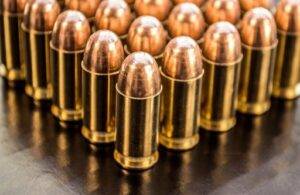Bullets are the ammunition fired from firearms, varying in size, shape, and velocity. The speed at which bullets travel is a critical factor influencing their impact, penetration, and potential damage. Understanding their velocity is vital for various fields, including ballistics, forensic science, and even military tactics. Let’s delve into the fascinating world of bullet speeds to comprehend their velocity, factors affecting it, and the implications.
Bullet Speed Basics
Defining Bullet Velocity
- Bullet velocity refers to the speed at which a bullet travels after being fired from a gun.
- Measured in feet per second (fps) or meters per second (m/s), it determines the bullet’s force and impact.
Varied Speed Ranges
- Bullet speeds can range widely depending on the firearm, bullet type, and caliber.
- Handguns typically fire bullets at speeds between 760 fps to 1,600 fps.
- Rifles generally propel bullets much faster, often reaching speeds of 2,500 fps to 4,000 fps.
- Specialized high-velocity rifles or military firearms can exceed 4,000 fps.
Factors Influencing Bullet Speed

Firearm Type and Caliber
- Different firearms, such as pistols, rifles, and shotguns, exhibit varying bullet speeds.
- The caliber and design of the firearm significantly impact bullet velocity.
Bullet Weight and Design
- Heavier bullets tend to move slower than lighter ones due to inertia and mass.
- Aerodynamic design affects bullet speed, with streamlined bullets traveling faster.
Propellant and Barrel Length
- The type of gunpowder and the length of the barrel influence bullet acceleration and speed.
- Longer barrels often contribute to increased velocity by allowing the bullet more time to gain speed.
Applications and Implications
Ballistics and Accuracy
- Understanding bullet speed is crucial in determining a bullet’s trajectory and accuracy.
- Ballistic experts consider velocity for precision in shooting and estimating impact.
Forensic Investigations
- Bullet speed aids forensic investigations by assessing the damage caused and the distance of the shooter from the target.
Military and Defense
- High-speed bullets in military-grade firearms serve strategic purposes for long-range combat and armor-piercing capabilities.
Bullet speed plays a pivotal role in various aspects of firearm usage and understanding the physics of projectile motion. The velocity at which bullets travel significantly influences their impact, accuracy, and application in diverse fields. Factors such as firearm type, bullet design, and propellant affect their speed, making it an essential consideration for enthusiasts, professionals, and those involved in related fields.

